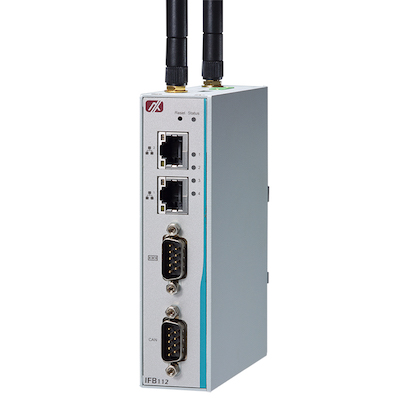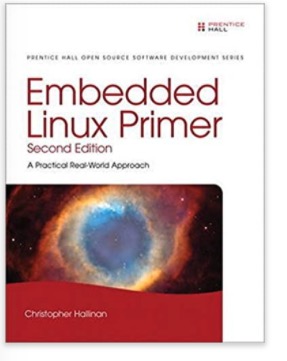Recent Posts
DIN-Rail IIoT (Industrial Internet Of Things) Gateway With CAN Bus Interface For Transportation And Industrial Applications
Posted by on
Axiomtek announced the launch of its RISC-based fanless DIN-rail IIoT gateway, the IFB112. The fanless IIoT gateway supports the NXP (Freescale) i.MX6UL ARM Cortex-A7 528MHz SoC. It offers a combination of features that make it suitable for a variety of challenging applications including transportation, heavy-duty industrial use, smart factory, smart grid, etc.
The design concept of IFB112 is aiming to meet the demands of mission critical applications. The gateway controller with IP30-rated aluminum and steel enclosure supports an operating temperature ranging from -40°C to 70°C, a voltage range of 9V - 48V DC power input with terminal block, and has been designed to withstand vibration up to 5G. For system integrators with wireless communication needs, the IFB112 has one PCI Express Mini Card slot, one SIM card slot, and two internal antennas. It supports one serial port, two LANs and one CAN Bus port to enable fast and efficient data acquisition and communication. Its digital I/O port provides users with a convenience of digital devices connection.
The DIN-rail fanless gateway comes with one 256MB DDR3 onboard memory and one 4GB eMMC flash memory for storage. The system is designed with 31 x 100 x 125 mm in size and has I/O connections including one RS-232/422/485 port, two 10/100 Mbps LAN ports, one USB 2.0 port, one CAN Bus port, and one digital I/O (2-IN/1-OUT). The industrial grade DIN-rail embedded platform comes with Yocto embedded Linux to provide an open standard operating system for software program development.
Features
- RISC-based (i.MX 6UltraLite) processor 528 MHz
- 256MB DDR3 SDRAM onboard
- 4GB eMMC flash onboard
- 1 Wireless (Wi-Fi or 3G/4G)
- 1 CAN Bus
- 2 digital inputs and 1 digital output
- 9 ~ 48 VDC wide range power input with terminal block
- Embedded Linux operating system (Yocto)
- Fanless design
- Wide operating temperature range from -40°C to +70°C
More Resources
- Download/View the Axiomtek IFB112 IIoT Gateway data sheet (PDF)...
- More Information...
Linux has emerged as today’s #1 operating system for embedded products. Christopher Hallinan’s Embedded Linux Primer has proven itself as the definitive real-world guide to building efficient, high-value, embedded systems with Linux. Now, Hallinan has thoroughly updated this highly praised book for the newest Linux kernels, capabilities, tools, and hardware support, including advanced multicore processors.
Drawing on more than a decade of embedded Linux experience, Hallinan helps you rapidly climb the learning curve, whether you’re moving from legacy environments or you’re new to embedded programming. Hallinan addresses today’s most important development challenges and demonstrates how to solve the problems you’re most likely to encounter.
You will learn how to build a modern, efficient embedded Linux development environment, and then utilize it as productively as possible. Hallinan offers up-to-date guidance on everything from kernel configuration and initialization to bootloaders, device drivers to file systems, and BusyBox utilities to real-time configuration and system analysis. This edition adds entirely new chapters on UDEV, USB, and open source build systems.
- Tour the typical embedded system and development environment and understand its concepts and components.
- Understand the Linux kernel and userspace initialization processes.
- Preview bootloaders, with specific emphasis on U-Boot.
- Configure the Memory Technology Devices (MTD) subsystem to interface with flash (and other) memory devices.
- Make the most of BusyBox and latest open source development tools.
- Learn from expanded and updated coverage of kernel debugging.
- Build and analyze real-time systems with Linux.
- Learn to configure device files and driver loading with UDEV.
- Walk through detailed coverage of the USB subsystem.
- Introduces the latest open source embedded Linux build systems.
- Reference appendices include U-Boot and BusyBox commands.
 Loading... Please wait...
Loading... Please wait...


